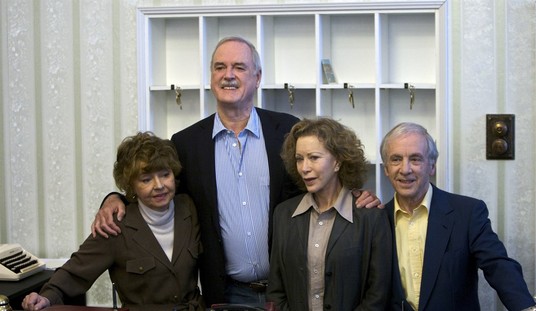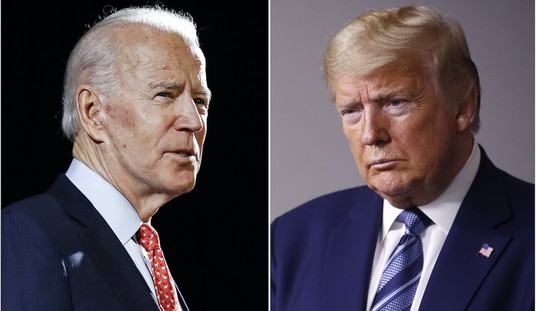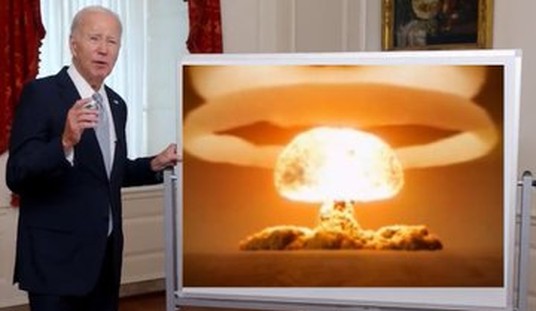There has been plenty of handwringing over the wide Republican field for the 2016 presidential nomination, but it’s not clear why that’s such a problem. No clear front-runner has emerged, which means that GOP voters have plenty of opportunity to take their time in selecting the the next nominee — and hopefully the next President. After a couple of cycles that lacked enough viable choices for a healthy debate about the direction of the party, Republicans now have a plethora of viable talent in the mix.
As I write in my column for The Week, the GOP should embrace that reality as a free market approach to the nomination, especially in contrast to what Democrats have this cycle:
Democrats will have come to the end of eight years of governance under Barack Obama, and face a crossroads of their own. Obama’s progressive economic policies have largely produced a stalled economy. Foreign policy has resulted in large setbacks in the Middle East and with Russia. Incompetence erupted at HHS and the Veterans Administration despite high-profile promises of progressive expertise. Democrats are in the same position, ideologically speaking, as Republicans in 2008 — stuck with the agenda of an expired presidency and lacking any clear vision on how to proceed.
A party in this position needs a healthy debate on what works, what doesn’t, and what engages both the party and the general electorate. Instead, Democrats appear ready to do what Republicans have done for a generation — go with the runner-up in the last open cycle. Hillary Clinton not only will carry the weight of Obama’s failures into the election, especially on foreign policy, but she has all but shut out any other contenders for serious consideration. Clinton spent most of the time since her first failed bid wooing big-ticket political donors on the left, denying resources to the few potentially viable challengers she might have.
That’s not illegitimate — in fact, it’s good establishment politics — but it’s what helped drive the GOP in a ditch in the 2012 cycle. Even more, it underscores a fundamental difference between the two parties. Republicans will have a forum for real grassroots input and buy-in for the eventual direction of the party. Democrats will end up with a top-down mandate for a coronation, unless Clinton stumbles badly again. If she does, it might be too late to recover.
Right now, as I briefly mentioned in a post yesterday, the Democrats appear to have boxed themselves into precisely the same position as Republicans did in 2012. They have a retread from the previous cycle locking up the establishment donors despite carrying baggage from the previous job — Romney’s was the health-care law in Massachusetts, Hillary Clinton’s is the State Department failures and Obama foreign-policy collapse, plus a lot more. The only challengers are barely-qualified fringe characters who can’t access the donor establishment and who may rise and fall strictly based on the news cycle, but none of whom have the standing or stamina to outlast the inevitable.
What better contrast could free-market conservatives hope to get?
One of the main objections to the large fields, the mechanics of televised debates, puts the cart before the horse and threatens to derail the advantage. Debates with more than two or three people on stage become nothing more than hot-take percolators and zinger-fests, doing precisely the kind of damage that Republicans fear without offering any advantages. Allowing media companies — whether it be Fox or CNN — to artificially narrow the field to 10 candidates by their own polling essentially surrenders the free-market advantage and endorses top-down mandates, and by the mainstream media, no less. And even at 10, 8, or 6 candidates, the debate will be so superficial and contrived that it won’t give Republicans a chance to really sell a conservative agenda in depth, so there’s no value in the event.
Here’s a better idea: skip the debates until the field narrows down through voter choice. Alternately, conduct forums where candidates talk about their own policies and strengths one at a time, rather than compete for 10-second sound bites under the control of the media outlets. Embrace the strength of the market, rather than trade it off for a prime-time fundraiser or two. That would contrast powerfully with the coronation of the Establishment Queen across the aisle — if only Republicans would allow it to unfold.








Join the conversation as a VIP Member